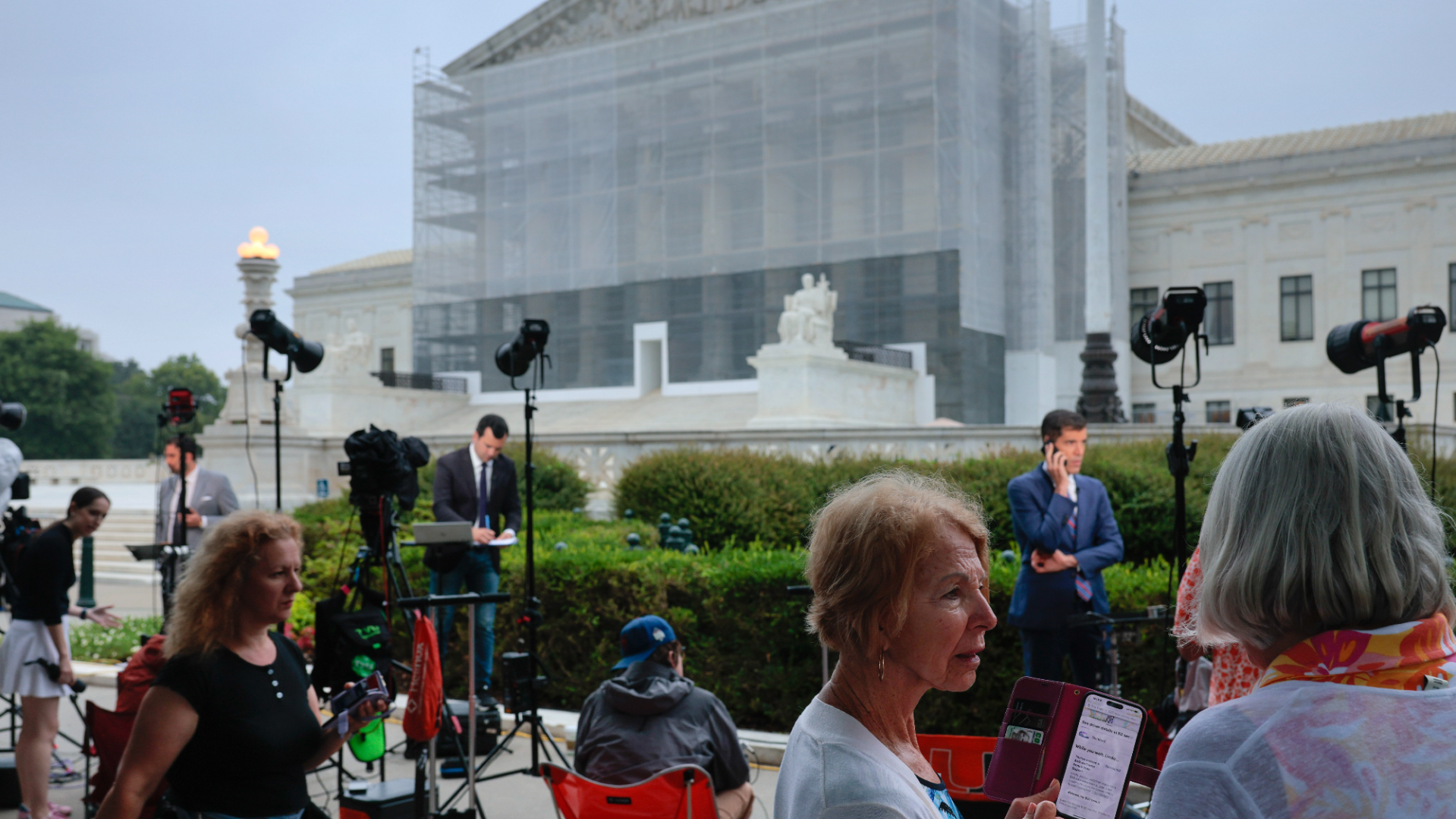First Choice Women’s Resource Centers will have the ear of the United States Supreme Court this fall as the Christian nonprofit pushes back against what it believes is a clear attack on First Amendment freedoms.
The Supreme Court added First Choice Women’s Resource Centers, Inc. v. Platkin to the schedule for the upcoming term, which starts in October. A specific date hasn’t been chosen yet.
New Jersey Attorney General Matthew Platkin has accused the organization of deceptive advertising that misleads women. In December 2022, he issued a consumer alert, warning residents that crisis pregnancy centers do not offer “comprehensive reproductive health care,” specifically abortions.
The following year, Platkin launched an investigation into First Choice, a pro-life organization with five locations in New Jersey that provides counseling and support to encourage pregnant women to have their babies. The organization does not say that it’s pro-life on the front page of its website, but does identify itself as an “abortion clinic alternative.”
“We believe each person has a right to get accurate information from a resource that will not profit from the choices and pregnancy decisions they make,” the site says. “First Choice Women’s Resource Centers is an abortion clinic alternative that does not perform or refer for termination services.”
According to Platkin, this qualifies as “deceptive and fraudulent commercial practices” and “deceptive and misleading statements or omissions by charitable organizations,” violating New Jersey law.
First Choice Executive Director Aimee Huber told CT that the demands of the subpoena are overwhelming to contemplate.
“We’re a small nonprofit, so the time that it would take for me to compile up to ten years of documentation would be completely burdensome and overwhelming,” Huber said. “Most importantly, it would take us away from our mission of serving women.”
Pro-life lawyers say it’s also an illegal violation of the rights protected by the US Constitution. Attorneys general from 19 states and the Trump administration agree. More than a dozen organizations, including Christian Legal Society, the Becket Fund for Religious Liberty, the Institute for Free Speech, Americans United for Life, Save the Storks, and Heartbeat International, have submitted friend-of-the-court briefs defending First Choice.
“The Attorney General of New Jersey was asking for private communications between workers, volunteers, clients, donors,” Adam Mathews, who represents Heartbeat International, told CT. “All that type of information … has constitutionally been protected at the highest court.”
Being forced to release donor information can have “an incredibly chilling effect on any type of communication,” according to Mathews.
There are recent examples of activists using that information to try to get people fired—sometimes successfully. Mathews gave the example of JavaScript inventor and Mozilla cofounder Brendan Eich, who gave money to support a ban on same-sex marriage in California and was forced to resign.
Lincoln Wilson, senior counsel at Alliance Defending Freedom, the firm representing First Choice, feels optimistic that the Supreme Court will see the merit of their case. Precedent is on the crisis pregnancy center’s side, he said, pointing to NAACP v. Alabama ex rel. Patterson.
In that 1958 case, the state of Alabama was trying to subpoena the NAACP’s membership list. The Supreme Court ruled that the request constituted harassment and infringed on the freedom of association rights guaranteed in the First Amendment. It was a unanimous decision.
Before the court can consider the subpoena, however, it will have to decide if the case should be a federal case at all. A lower court ruled that the case couldn’t be appealed at the federal level until after it was fought out in state courts. That decision was upheld by the Third Circuit.
Lawyers for First Choice argue that this denies the nonprofit the opportunity to defend itself until after the potential harm has occurred. Experts say the Supreme Court will focus first on the question of when federal judges can intervene.
Defenders of the crisis pregnancy clinic say this is what the federal courts are for.
“Federal courts have been explicitly designated by Congress to hear federal civil rights claims,” the American Legislative Exchange Council argued in one legal brief submitted to the Supreme Court. “By denying a federal forum, the lower courts undermine the division of state and federal authority that is central to the American system of government.”
Pro-life advocates say their major concern, however, is less the legal question about the appropriate court for the lawsuit and more the fear of local governments going after Christian nonprofits. They hope the Supreme Court will decide for First Choice, clearing the way for the crisis pregnancy center to appeal the real question.
“There are so many components … that are strikingly chilling for the public and for pregnancy centers across the country,” said Americans United for Life spokeswoman Sarah Zagorski.
She believes First Choice was attacked because it was a Christian organization.
“That’s something that’s very shocking for the public and something the public should know,” she said. “It threatens long-established protections … for religious entities.”
Huber hopes the courts will protect First Choice from harassment. But she wants a Supreme Court victory to help protect other religious nonprofits and bolster First Amendment protections.
“I believe it could be precedent-setting,” Huber said, “and protect all different sorts of nonprofits from government overreach and from bullying and harassment when the government does not share their viewpoint.”
For now, she is just thankful that the Supreme Court is willing to listen.
“While it does weigh heavy, I am hopeful and strengthened by what God could achieve through it.”












